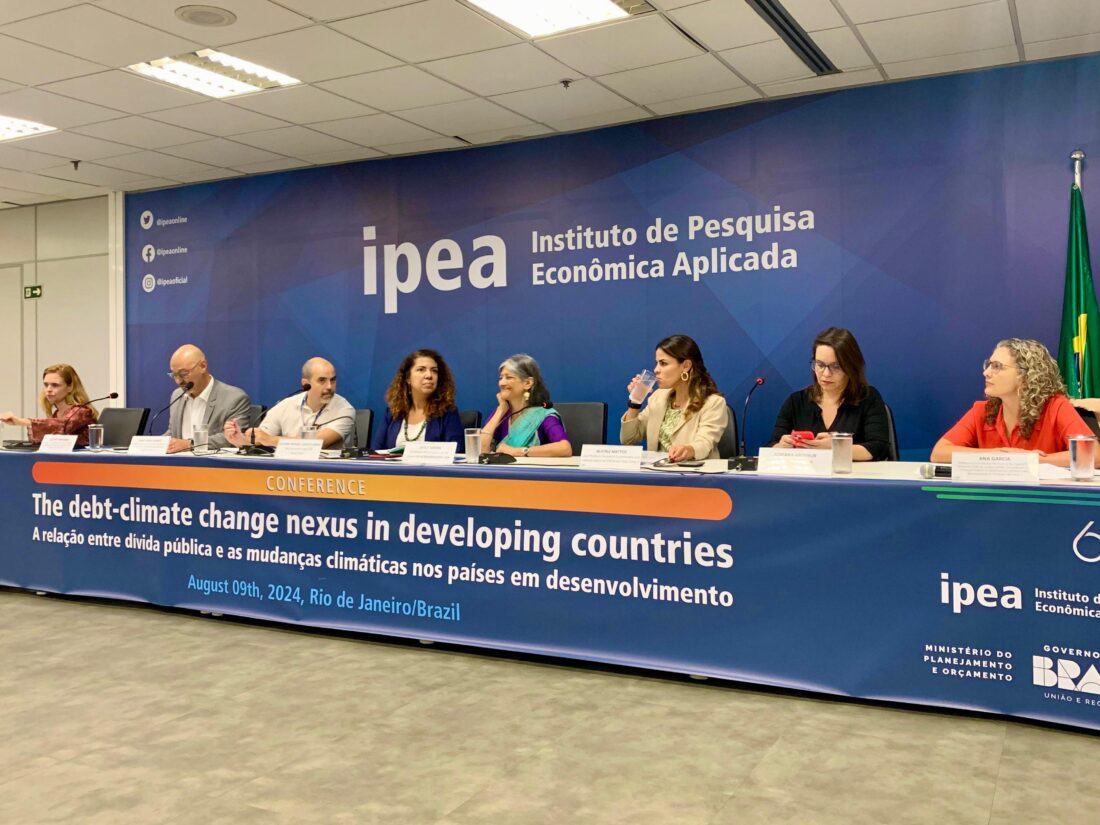
BRICS Policy Center at the conference “The Relationship Between Public Debt and Climate Change in Developing Countries” event promoted by T20 Brazil
The reform of the international financial architecture for adaptation to climate change were some of the important points of the conference “The Relationship Between Public Debt and Climate Change in Developing Countries”, which took place last week in Rio de Janeiro. The event was a meeting of T20 Brazil, the G20 engagement group that brings together think tanks and research centers, organized by the Institute for Applied Economic Research (Ipea) in Rio de Janeiro.
The main highlight of the event was a talk by Indian economist Jayati Ghosh, a professor at the University of Massachusetts and an expert on inequality. The researcher advocated a reform of the international financial architecture, one of the themes worked on by the BRICS Policy Center as co-leader of T20 Task Force 3. According to the expert, debts are contracted under unfavorable conditions and prevent investment in adaptation to climate change. “We need a structure that allows these countries to breathe, so that they can invest in their future without constantly being on the brink of financial collapse”
Gosh also commented that global elites are the biggest emitters of greenhouse gases and the ones who benefit most from the world economic system, while developing countries and vulnerable populations face the consequences.
BRICS Policy Center researcher Ana Garcia took advantage of her comments to highlight the challenges of the energy transition in Brazil with the fiscal limitations imposed by the spending ceiling.“Brazil has enormous potential to lead the energy transition in Latin America, but we need to negotiate better with multinationals to ensure that the benefits of this transition are distributed fairly,” Garcia concluded.


